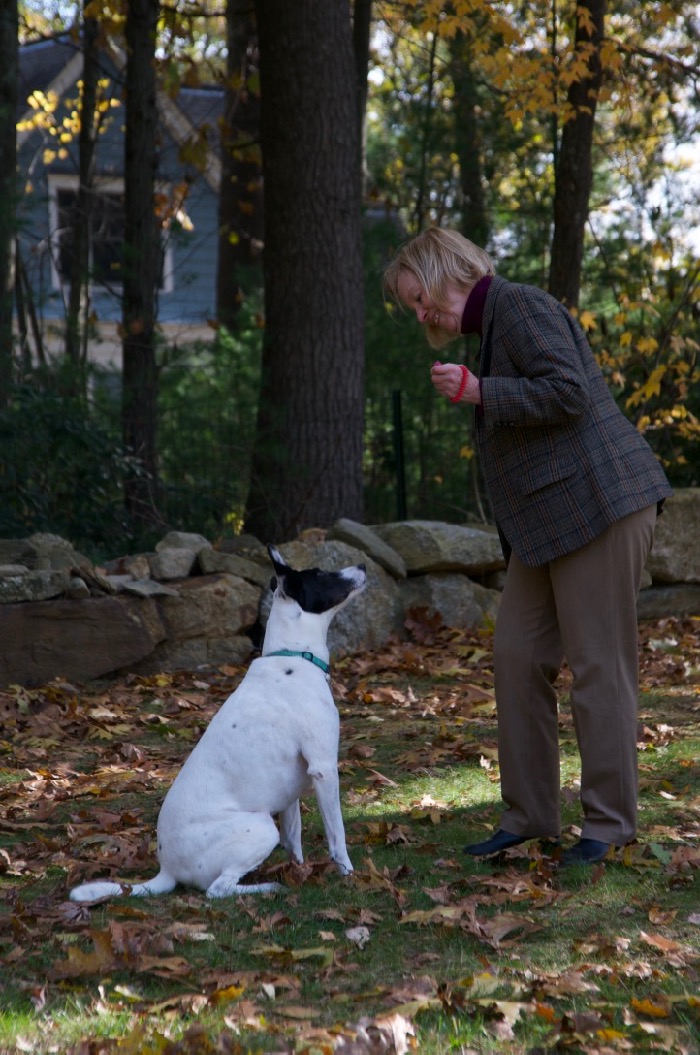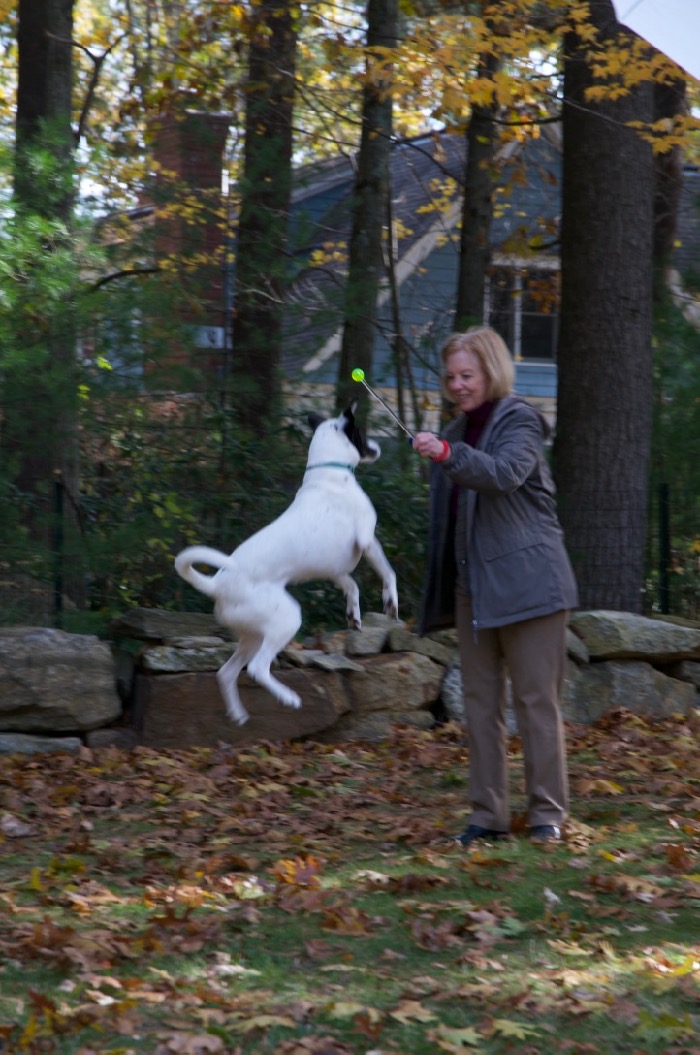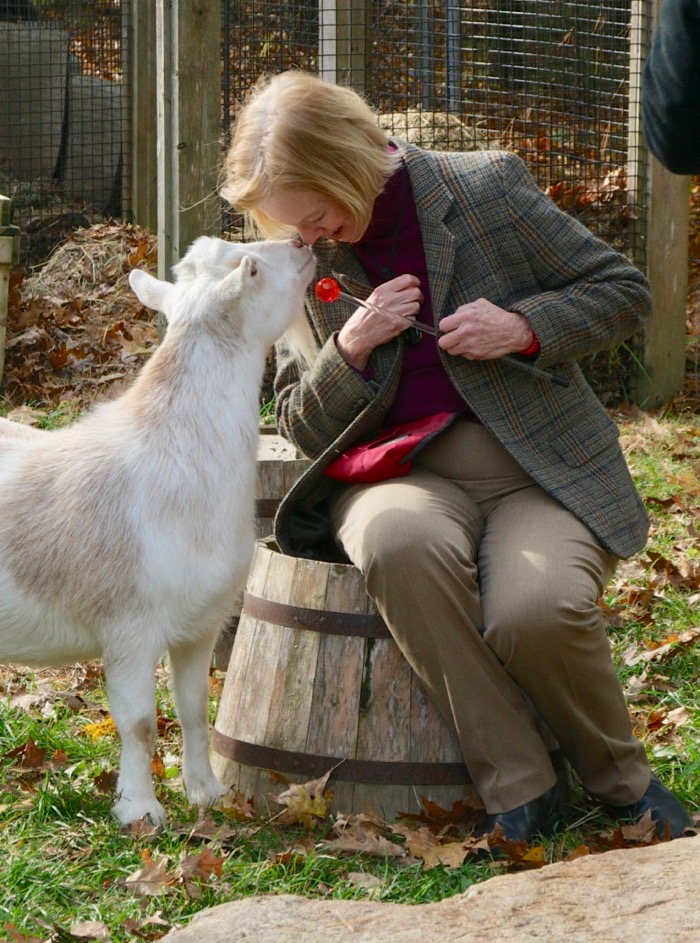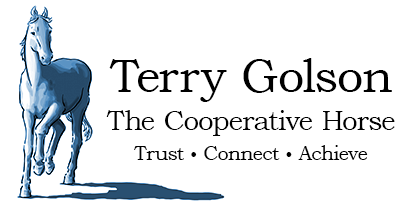Most of us have had an aha! moment that has changed our lives, but few of us take that insight and change the world. Karen Pryor is one of those rare people who has. In the 1960s she was handed an obscure and technical manual that she was instructed to use to train wild dolphins at Sea Life Park. Karen read it, gleaned out of it how the principles of operant learning, and a signal to indicate yes! at the moment of success, could transform training into something incredibly effective, with full communication open between the trainer and learner. Karen saw the big picture and knew that this was not just for dolphins, but for all living beings. Equally important, she ditched all of the punishment that was recommended in the manual. Fortunately for the world, Karen isn’t only an astute trainer, she’s also a brilliant communicator and writer. She wrote a book, and gave lectures, and so her insights spread. Zoo animals are now trained to willingly engage with their caregivers, our pets are trained with more kindness, and even wild animals are trained to help with conservation efforts. In a narrow sense, what Karen laid out is now called clicker training, but the applications are far broader than that. The same principles apply to human learning. The Hidden Brain, an NPR podcast, recently aired a piece about how a surgeon, Dr. Martin Levy, has been using the clicker to teach surgical skills to his medical residents.
A story like this is far more complex than can be fit into an aired segment. The podcast left out how Dr. Levy called in Karen, and Theresa McKeon, one of the founders of TAGteach, to help him to develop this training program. But that’s okay. The message continues to spread and change the world.
Here’s the link. Take a listen.
For more about Karen’s work, and a full listing of all of her papers and writing, go here.
Just for fun, here are two of my favorite photos of Karen. This was eight years ago, when my good dog Lily was crazy athletic.


One thing about clicker training is that it brings out the joy in interactions. Even with goats. Listen to the podcast, and what you’ll hear is that it also does that for medical students.



I need to study all this to see how I can apply it to my teenaged son!
Read “Don’t Shoot the Dog” for examples of how this works with sons. Works on husbands, too. Ask Steve 🙂
Very informative blog, my son is fifty now bit to old to retrain needed to know this forty years ago. Love the pics of Lily. Hope you are keeping well and all the animals are okay. Jess and I always read your Tonka blogs. I keep forgetting to ask Jess what breed the ex hunters and large ponies are she rides. The Shetlands are great. Have some good shows this year, 🙂
Pingback: From Dolphins to Training Surgeons – Karen Pryor